Distinguished faculty receive endowed chairs
By Steve KoppesNews Office
Three University faculty members, Douglas Diamond, the Theodore O. Yntema Professor of Finance in the Graduate School of Business; Mark Siegler, the Lindy Bergman Professor in Medicine; and Hugo Sonnenschein, President Emeritus, have recently received distinguished service professorships. Siegler is now the Lindy Bergman Distinguished Service Professor in Medicine; Diamond has been named the first Merton H. Miller Distinguished Service Professor in the GSB; and Sonnenschein has been named the Charles L. Hutchinson Distinguished Service Professor.
Five other University professors have been appointed to first-ever named chairs, including new faculty member, John Heaton. Also receiving first-ever named chairs are Joel Kraemer, William Parish, Sangram Sisodia, and Toby Stuart.
Additionally, eight other faculty members have received named professorships–Franklin Gamwell, Dennis Hutchinson, Atef Moawad, Keith Moffat, Marsha Rosner, Matthew Stolper, Clark Gilpin, and new faculty member Ray Ball.
Diamond, the first Merton H. Miller Distinguished Service Professor, who began teaching at the University as an Instructor in 1979, also has taught at Yale School of Organization and Management as a professor in finance. He was a visiting professor in finance at Hong Kong University of Science and Technology, and a visiting scholar of economics at the Bank of Japan and the University of Bonn.
 Douglas Diamond |
The recipient of a National Science Foundation grant and a Garn Institute of Finance grant, Diamond is interested in researching the theories of financial intermediation, bank regulation and deposit insurance as well as debt financing and financial theory with imperfect information.
In addition to serving as a board member of numerous editorial and financial associations, Diamond is a fellow of the Econometric Society, editor of the Journal of Business and president-elect of the Western Finance Association.
He is the author of academic articles that have appeared in such journals and scholarly publications as the Journal of Political Economy, the Review of Economic Studies and the Journal of Finance. Some of the topics Diamond has written on include “Bank Runs, Deposit Insurance and Liquidity,” “Banks, Short Term Debt and Financial Crises” and “Monitoring and Reputation: The Choice Between Bank Loans and Directly Placed Debt.”
Diamond received his A.B. from Brown University in 1975; his M.A. from Yale University in 1976; his M.Phil. from Yale University in 1977; and his Ph.D. from Yale University in 1980, all in economics.
Gamwell, the Shailer Mathews Professor in the Divinity School, focuses on ethical and political theory in relation to Christian theology and the philosophy of religion in his research. His work is particularly centered on 20th-century thinkers.
 Franklin Gamwell |
His books include The Divine Good: Modern Moral Theory and the Necessity of God and Democracy on Purpose: Justice and the Reality of God.
Gamwell served as an Instructor in Ethics and Society at the Divinity School in 1971. From 1973 until 1975, he was an assistant professor in religious studies at Manhattanville College. In 1975 he began work with the Rockefeller Family Philanthropic Office in New York, where he remained until 1979, when he returned to the faculty of the Divinity School.
In 1980, Gamwell began his first of two terms as Dean of the Divinity School, a position he held for 10 years.
He received his B.A. from Yale University. An ordained Presbyterian minister, he completed his B.D. at Union Theological Seminary, and received both his M.A. and Ph.D. degrees from the Divinity School at the University.
Gilpin, who concluded a 10-year term as Dean of the Divinity School at the end of June, is now the first Margaret E. Burton Professor in the Divinity School.
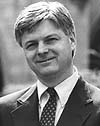 Clark Gilpin |
His scholarly work has focused on puritanism and the relationship between religion and education in American culture. His current projects include a study of the “letter from prison” as a genre of religious literature and Experimental Lives in the American Renaissance, a book about the self-representation of 19th-century American intellectuals.
Gilpin has published a biography of Roger Williams, the noted 17th-century advocate of religious liberty and founder of the colony of Providence, R.I., in 1643. His most recent book, A Preface to Theology, examines American theological scholarship in terms of its historic responsibilities to a three-fold public in the churches, the academic community and civil society. His articles, essays and reviews have appeared in Criterion, Christian Century, Journal of Religion and Religious Studies Review.
Gilpin is an ordained minister of the Christian Church (Disciples of Christ), and a member of the American Academy of Religion. He also is past president of the Association of Disciples for Theological Discussion.
Gilpin received his B.A. from the University of Oklahoma. He then attended Lexington Theological Seminary, where he earned the degree of M. Div. He completed both his M.A. and Ph.D. degrees at the University’s Divinity School.
Hutchinson, an expert on Supreme Court history, has been named the William Rainey Harper Professor in the College. He also serves as Senior Lecturer in Law, Master of the New Collegiate Division and Associate Dean of the College.
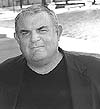 Dennis Hutchinson |
In the College, Hutchinson helped establish the Law, Letters and Society concentration program. As Master of the New Collegiate Division, Hutchinson oversees programs that draw faculty from a variety of disciplines to teach courses that do not fall under specific divisions. The New Collegiate Division includes the concentrations Fundamentals: Issues and Texts; Tutorial Studies; Ideas and Methods; and Law, Letters and Society.
Hutchinson received a B.A. in 1969 from Bowdoin College, and B.A. and M.A. degrees in jurisprudence in 1973 and 1977, both from Magdalen College at Oxford. He also received a L.L.M. from the University of Texas at Austin in 1974.
Before joining the Chicago faculty in 1981, Hutchinson taught at American University’s Washington College of Law and at Georgetown’s Law Center.
Kraemer, a leading scholar of of Islamic and Jewish intellectual history, is now the John Henry Barrows Professor in the Divinity School.
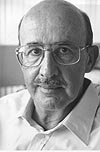 Joel Kraemer |
He joined the faculty of the Divinity School in 1994 and was subsequently appointed to the Committee on Social Thought, the Committee on Jewish Studies and the Center for Middle Eastern Studies. Before coming to Chicago, he held the Abrams chair at Notre Dame University and served as a fellow at the Institute for Advanced Studies at Hebrew University. Kramer was a visiting lecturer at the äcole des Hautes ätudes, and is a life member of Clare Hall College at Cambridge. Kraemer also has served as a professor of Middle Eastern and African history at Tel Aviv University. He has received numerous accolades for his scholarly work, including a National Endowment for the Humanities grant in 1986.
Kraemer’s books include Humanism in the Renaissance of Islam and Philosophy in the Renaissance of Islam . The Humanism volume was translated into Persian. He has edited several other volumes, including Jerusalem: Problems and Prospects and Perspectives on Maimonides: Philosophical and Historical Studies . His articles have appeared in the Journal of Near Eastern Studies, Journal of the American Oriental Society, Jewish Quarterly Review and the Journal of Jewish Thought and Philosophy.
Kraemer began his university education at Rutgers, where he received a B.A. in philosophy in 1961. He earned his Ph.D. in Near Eastern Languages & Literatures from Yale University in 1967.
Moawad, the Blum-Riese Professor in Obstetrics & Gynecology, has been a member of the faculty for 28 years. He also has been the principal investigator for the National Institute of Child Health and Human Development, Maternal-Fetal Medicine Unit for the past nine years. The National Institute of Child Health and Human Development is made up of a network of 13 academic medical centers nationwide, which conducts clinical trials to decrease perinatal mortality with special emphasis on premature births.
 Atef Moawad |
As Chief of the Section of Maternal-Fetal Medicine, Moawad specializes in high-risk obstetrics and perinatology. He also is a member of 13 professional societies.
In 1999, he was awarded the Jonas Salk Physician Leadership Award by the March of Dimes in Illinois. In 1997, Moawad was named one of Good Housekeeping magazine’s best doctors for women in the United States and one of Chicago magazine’s top physicians.
University medical students and obstetrics and gynecology residents also have named him “best teacher” on repeated occasions.
He is the author or co-author of more than 100 articles in peer-reviewed journals and seven book chapters.
Moffat, a leader in the development and application of new technologies for understanding protein structure and its relation to biological function, is now the Louis Block Professor in Biochemistry & Molecular Biology.
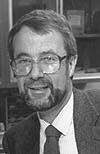 Keith Moffat |
Moffat focuses on the development of ultra-fast X-ray crystallography techniques, down to the time scale of 100 picoseconds, and their application to the study of the motion of atoms and groups of atoms in biological crystals. This approach is sometimes called “molecular movie-making.”
Moffat held a National Institutes of Health Research Career Development Award from 1978 to 1983, and he was named a John Simon Memorial Foundation Guggenheim Fellow and a Royal Society Guest Research Fellow from 1985 to 1986. He also has been a NIH Merit Awardee since 1995.
Moffat came to the University in 1990 as a Professor in Biochemistry & Molecular Biology, and was named Director of CARS in 1993. He came to Chicago from Cornell University, where he was a professor in biochemistry, molecular and cell biology and founder of MacCHESS, the NIH Biomedical Technology Resource at the Cornell High Energy Synchrotron Source.
He received his B.Sc. in physics from the University of Edinburgh in 1965, and his Ph.D. from the University of Cambridge, England, in 1970.
Parish, a sociologist and internationally known expert on contemporary Chinese society, is the first Centennial Professor in Chinese Studies. The chair was established last year with a gift from the Institute of International Relations of the National Chengchi University in the Republic of China.
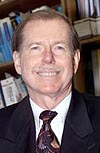 William Parish |
His subsequent work has examined gender and family issues and explored society in Taiwan. Parish also is the author of numerous articles on these topics and co-author of Chinese Urban Life Under Reform. He has written a chapter about the impact of globalization on daughters and parents in Taiwan for the forthcoming book Women in East Asia. He is leading a survey “Chinese Family and Health Behavior,” which is funded by the National Institute of Child Health and Development.
Parish received a B.A. in 1962 from the University of Texas and a Ph.D. in 1970 from Cornell University. He has been a faculty member at Chicago since 1968.
Rosner, Professor in the Ben May Institute for Cancer Research and in Neurobiology, Pharmacology and Physiololgy, has been named the Charles B. Huggins Professor in the Ben May Institute for Cancer Research.
Rosner studies the basic biology of the cell and, in particular, how cells use molecules called growth factors to signal growth, differentiation or cell death.
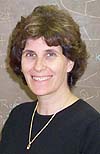 Marsha Rosner |
She joined the University in 1987 as an Associate Professor and was appointed Professor and Chairman of the Committee on Cancer Biology in 1994. Before coming to the University, she was an associate professor of toxicology at the Massachusetts Institute of Technology.
Rosner received her A.B. in biochemistry from Harvard University in 1972 and her Ph.D. from MIT in 1978.
Siegler, the Lindy Bergman Distinguished Service Professor in Medicine and a pioneer in the development of the field of medical ethics, is the founder and Director of the MacLean Center for Clinical Medical Ethics. He is an authority on ethical issues raised by the doctor-patient relationship, the development of innovative therapies, and end-of-life concerns.
He has written or co-authored more than 150 journal articles and several books. His text, Clinical Ethics: A Practical Approach to Ethical Decisions in Clinical Medicine, co-authored with two other bioethicists, is in its fifth edition. He is a fellow of the Hastings Center, and has served on the ethics committees of the American Geriatrics Society, the American College of Physicians, and the American College of Surgeons.
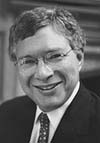 Mark Siegler |
In 1984, the University established the Center for Clinical Medical Ethics, one of the first such centers in the United States, and appointed Siegler Director. Since then, the program has trained more than 100 physicians and other professionals, many of whom now direct ethics programs at other leading medical schools. For three consecutive years, U.S. News and World Report named the center the leading medical ethics program in the country.
Sisodia, Professor and Chairman of Neurobiology, Pharmacology & Physiology, has been appointed the first Thomas A. Reynolds Sr., Family Professor of Neurosciences.
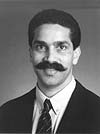 Sangram Sisodia |
Sisodia came to Chicago in May 1998, from the Johns Hopkins University School of Medicine, where he was a professor in neuroscience and pathology and a faculty member in the cellular and molecular medicine program. As Chairman of Neurobiology at Chicago he has pulled together a wide variety of scientific disciplines, including genetics and molecular biology, clinical geriatrics and cutting-edge neuroscience to learn more about the molecular biology of Alzheimer’s.
He earned his B.A. in chemistry from the College of Wooster in 1977 and his Ph.D. in chemistry from the University of Georgia in 1985. He completed his post-doctoral training at Johns Hopkins University in 1988 and taught there for 10 years before coming to Chicago. He serves on the editorial boards of several scientific journals, including Cell and Neuron.
Sonnenschein, President Emeritus of the University, has been named the Charles L. Hutchinson Distinguished Service Professor.
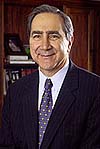 Hugo Sonnenschein |
Sonnenschein served as President of the University from 1993 until June 30. During his seven years in office, he substantially improved fundraising, oversaw changes in recruiting that have attracted a greater percentage of the nation’s brightest prospective college students, and initiated a Campus Master Plan. Under that plan, capacity for the Regenstein Library has already increased, and construction projects are currently under way for a new Press building, the Max Palevsky Residential Commons, and the Gerald Ratner Athletics Center. Plans are also being developed for a new interdivisional science research building, a new Graduate School of Business campus and an additional dining commons.
Before assuming Chicago’s presidency, Sonnenschein was provost of Princeton University from 1991 until 1993, where he also served as a professor in economics from 1976 to 1988. He was dean of the School of Arts and Sciences at the University of Pennsylvania from 1988 until 1991.
He has served as a professor and visiting professor in economics at numerous universities in the United States and abroad, including the University of Minnesota, Northwestern University, Stanford University, the University of the Andes (Bogot∑), the Hebrew University of Jerusalem, the University of Paris and Tel-Aviv University.
Sonnenschein received his B.A. in mathematics from the University of Rochester in 1961 and his Ph.D. in economics from Purdue University in 1964.
Stolper, an internationally respected scholar of the cultures of ancient Iran and Mesopotamia, has been named the John A. Wilson Professor in Oriental Studies in the Oriental Institute.
 Matthew Stolper |
Stolper’s current research is a study of thousands of unpublished administrative documents in Elamite. An excavation led by the Oriental Institute recovered the documents in the royal Persian city Persepolis. The edition of these texts, from image to transcription to translation, will be worked out and disseminated electronically, relying on currently developing imaging and markup techniques.
Stolper received a B.A. in 1965 from Harvard University, an M.A. in 1967 and a Ph.D. in Near Eastern Studies in 1974, both from the University of Michigan. He joined the faculty in 1980 after serving on the faculty at the University of Michigan.
Stuart, the first Fred G. Steingraber-A.T. Kearney Professor in Strategic Management, is the associate editor of the American Journal of Sociology, and is the author of numerous scholarly articles. Those articles include “Aging, Obsolescence, and Organizational Innovation” (with Jesper Sorensen) published in 1999 in Administrative Science Quarterly; “A Structural Theory of the Rate and Intensity of Corporate Innovation,” published in 1999 in Industrial and Corporate Change; and “Local Search and the Evolution of Technological Capabilities” (with Joel Podolny) published in 1996 in the Strategic Management Journal. Stuart also is an ad hoc reviewer of the Management Science, the American Sociological Review, Administrative Science Quarterly, Strategic Management Journal, the Academy of Management Review, the Academy of Management Journal, and Organization Science.
 Toby Stuart |
A Kauffman Center for Entrepreneurial Leadership research grant recipient, Stuart earned his B.A. in economics from Carleton College, where he graduated summa cum laude and was admitted to Phi Beta Kappa, in 1989. He earned his Ph.D. in organizational behavior at Stanford University in 1995.
![[Chronicle]](/images/small-header.gif)